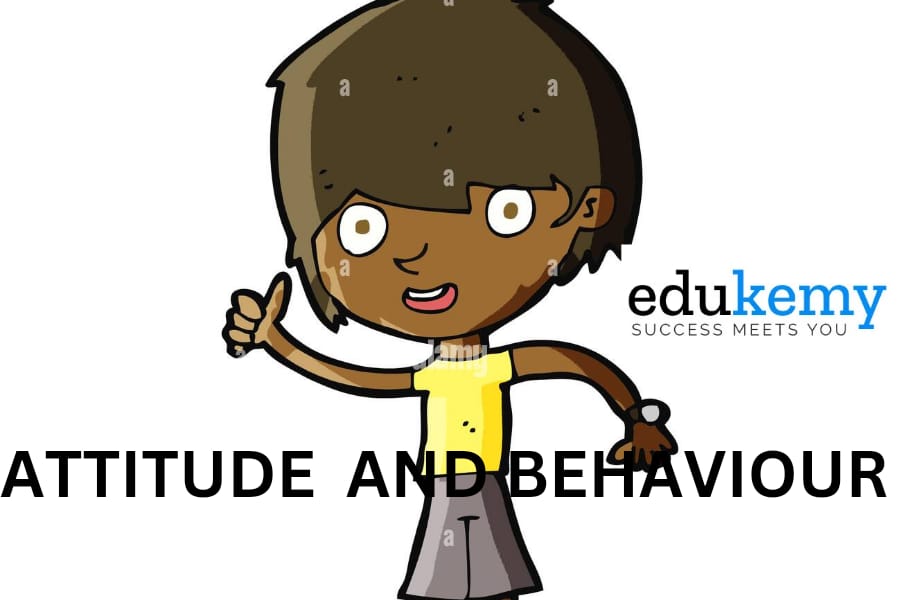
Attitudes and behaviors are two fundamental aspects of human psychology that greatly influence how individuals interact with the world around them. While attitudes represent our evaluations, beliefs, and feelings toward various objects, people, or ideas, behaviors encompass the actions, reactions, or conduct that individuals exhibit in response to internal or external stimuli.
Understanding the relationship between attitudes and behaviors is crucial for comprehending human psychology and social dynamics. Attitudes often serve as precursors to behaviors, shaping our intentions and guiding our actions. However, the relationship between attitudes and behaviors is complex and can be influenced by various factors such as situational constraints, social norms, and individual characteristics.
Several theories and frameworks have been proposed to explain the interplay between attitudes and behaviors. These include the Theory of Planned Behavior, which posits that attitudes, subjective norms, and perceived behavioral control collectively influence behavioral intentions and subsequent actions. Similarly, the Elaboration Likelihood Model suggests that attitudes can lead to behavior change through either central processing (systematic evaluation) or peripheral processing (superficial cues).
Additionally, social psychologists have explored phenomena such as cognitive dissonance, where inconsistencies between attitudes and behaviors lead to psychological discomfort, motivating individuals to align their attitudes with their actions.
Attitude and behavior are two related but distinct concepts.
Attitude refers to an individual’s overall evaluation or opinion about a particular object, person, or situation.
It is a psychological construct that reflects how an individual feels or thinks about something. Attitudes can
be positive, negative, or neutral.
Behavior, on the other hand, refers to the actions that an individual takes towards a particular object,
person, or situation. It is the observable or measurable response of an individual to their environment.
Behavior can be influenced by attitudes, but it is not always consistent with attitudes.
In other words, attitudes are internal, subjective evaluations of an object, whereas behaviors are external, observable actions towards that object. An individual’s attitudes may not always predict their behavior because there are often external factors that can influence behavior, such as social norms or situational factors.
FAQs
Q: What is the difference between attitudes and behaviors?
Attitudes refer to individuals’ evaluations, beliefs, and feelings towards various objects, people, or ideas. Behaviors, on the other hand, encompass the actions, reactions, or conduct individuals exhibit in response to internal or external stimuli. While attitudes represent internal states, behaviors are observable actions.
Q: Do attitudes always predict behavior?
While attitudes often serve as predictors of behavior, the relationship between attitudes and behaviors can be complex and influenced by various factors such as situational constraints, social norms, and individual characteristics. Strong, stable attitudes that are closely aligned with the behavior in question are more likely to predict behavior accurately.
Q: Can attitudes change behaviors?
Yes, attitudes can influence behaviors by shaping individuals’ intentions and guiding their actions. When attitudes are strong and consistent, they are more likely to translate into corresponding behaviors. Additionally, interventions aimed at changing attitudes, such as persuasive communication or social influence, can lead to behavior change.
Social norms, which are unwritten rules or expectations governing behavior within a group or society, exert a significant influence on individuals’ behaviors. People often conform to social norms to gain acceptance, approval, or avoid social rejection. Social norms can either align with or contradict individuals’ attitudes, leading to conformity or resistance.
Q: How can cognitive dissonance affect behavior?
Cognitive dissonance refers to the psychological discomfort experienced when individuals hold conflicting attitudes, beliefs, or behaviors. To alleviate this discomfort, individuals may change their attitudes to align with their behaviors or rationalize their behaviors to reduce inconsistency. Cognitive dissonance can influence behavior by motivating individuals to resolve the conflict between attitudes and actions.
In case you still have your doubts, contact us on 9811333901.
For UPSC Prelims Resources, Click here
For Daily Updates and Study Material:
Join our Telegram Channel – Edukemy for IAS
- 1. Learn through Videos – here
- 2. Be Exam Ready by Practicing Daily MCQs – here
- 3. Daily Newsletter – Get all your Current Affairs Covered – here
- 4. Mains Answer Writing Practice – here

